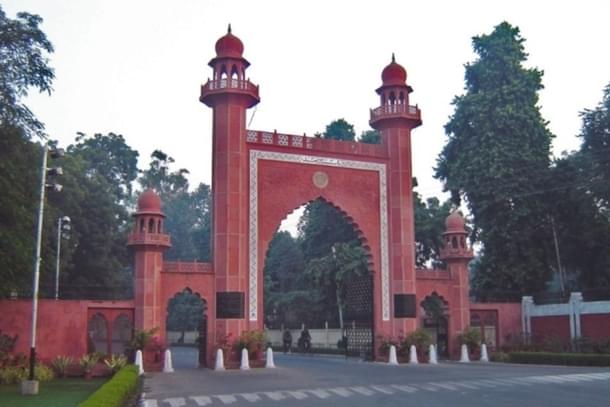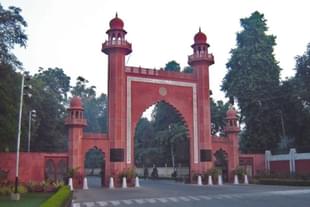Commentary
If SC Denies Minority Status To Aligarh Muslim University, Everyone Except The Islamists Stands To Benefit
S Rajesh
Jan 11, 2024, 05:26 PM | Updated 05:25 PM IST
Save & read from anywhere!
Bookmark stories for easy access on any device or the Swarajya app.


A seven-judge bench of the Supreme Court is currently hearing a case regarding whether the Aligarh Muslim University (AMU) is a 'minority institution'.
In its written submission, the Centre has contended that AMU cannot be a minority institution because it is an institution of a national character.
This is not the first time that the character of the institution has come into question. In S Azeez Basha and another versus Union of India (1967), the Supreme Court ruled that it could not be held that AMU was established by the Muslim minority even though the 1920 Act establishing the university may have been a result of their efforts.
After protests by the Muslim community against the ruling, the central government in 1981 amended the act to affirm its minority status.
Under Article 30(1), religious and linguistic minorities are allowed to establish and administer educational institutions of their choice.
In 2006, the Allahabad High Court, hearing a case against the university's decision to reserve 50 per cent of seats in postgraduate medical courses for Muslims, struck down the reservation policy and also nullified the amendment. It held that the university could not have done so because of the judgement in S Azeez Basha.
This was challenged before the Supreme Court by the Centre and others in 2008. The Narendra Modi government withdrew the appeal in 2016. The matter was referred to a seven judge bench in 2019.
While the ruling is yet to come, there are some reasons as to why would it be good if the court decides that AMU is not a minority institution.
For decades, the university has been in the grip of Islamists.
As recently October 2023, an FIR was filed against some students for taking out an unauthorised march in support of Palestine after Hamas tortured and killed hundreds of Israelis, triggering the Jewish state to launch an invasion of Gaza.
Several individuals arrested for connections to ISIS in the past were found to have affiliations with a university. (Read about it here and here)
Not widely recognised is the fact that SIMI, declared a terrorist organisation in 2001, was established in 1977 at Aligarh Muslim University.
Over the years, the control of Islamists on the political discourse in the university and its governance has only become stronger.
It was evidently when, in 2018, the AMU students union refused to remove portrait of Mohammed Ali Jinnah from the students’ hall.
More recently, during the protests against the Citizenship Amendment Act, slogans like 'Hindutva ki qabr khudegi, AMU ki chhati par' (हिंदुत्व की कब्र खुदेगी, AMU की छाती पर) were raised at the university.
One way of reducing radicalisation in the university could be bringing in more students and staff from other communities. It could also help in improving the overall atmosphere of the institution and loosen the grip of the Islamists.
Moreover, if the university would not be declared as a minority institution, it would have to provide reservations to Other Backward Classes, Scheduled Castes, Scheduled Tribes, and Economically Weaker Sections. An important point to note here is that there are a large number of people from the Muslim communities, which are classified as OBCs, would benefit from it.
Thus, it will only be the Islamists who would lose as a result of the Supreme Court deciding against AMU having a minority status. The change may come slowly, but a ruling would set the ball rolling in this direction.
S Rajesh is Staff Writer at Swarajya. He tweets @rajesh_srn.





